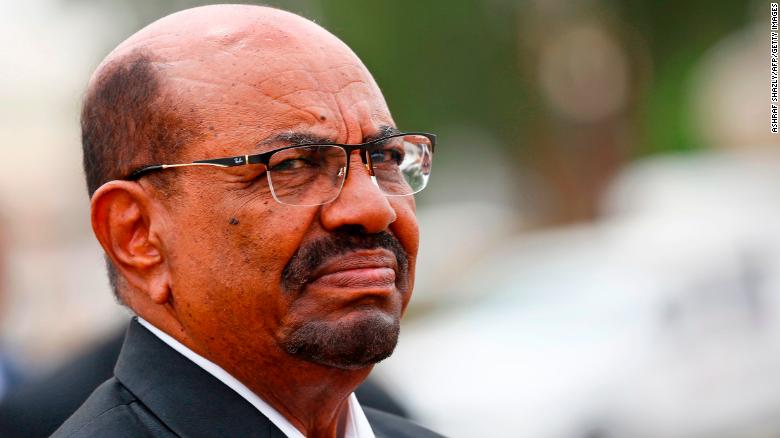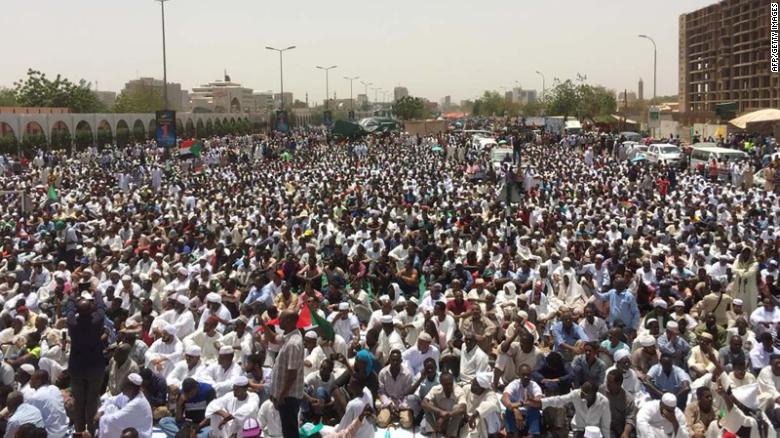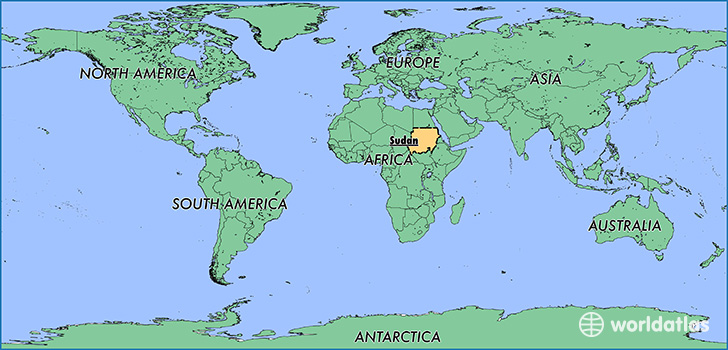Sudan’s ruling military council will prosecute deposed President Omar al-Bashir but will not extradite him, a military officer said Friday.
In a press conference, the head of transitional military council’s political committee Lt. General Omar Zein Alabedin vowed to try Bashir, forced out of power in a military coup on Thursday morning, and said that the army would help pave the path to democratic transition.
Bashir faces five counts of crimes against humanity and two counts of war crimes at the International Criminal Court (ICC) in The Hague in connection with Sudanese military actions in Darfur between 2003 and 2008.
Sudan’s President Omar al-Bashir looks on as he receives his Egyptian counterpart at Khartoum International Airport outside the Sudanese capital on October 25, 2018.
The United Nations human rights office called on Sudan on Friday to cooperate with the ICC. “We do encourage the authorities in Sudan to fully cooperate with the ICC. There is a Security Council resolution as far back as 2005 calling on the government of Sudan to fully cooperate with and provide assistance,” UN human rights spokeswoman Ravina Shamdasani said in a Geneva press briefing.
The ICC issued two arrest warrants for Bashir, first in March 2009 and then in July 2010. It now considers him to be “at large.”
Joy turns into fear
Protesters who rushed on to the streets to celebrate the ouster of the Sudanese strongman are facing the prospect of a long struggle ahead as the military figures who ended his 30-year rule seem to be preparing to hang on to power.
As news of Bashir’s downfall was still reverberating around the world, a military council dissolved the government, suspended the country’s constitution and declared a three-month state of emergency. The military said it will remain in control for at least two years to oversee a “transition of power,” leading to dismay from protesters and outside observers that elections will not be held anytime soon.
On Thursday, regime forces and regime-aligned militia killed 13 peaceful protesters with live ammunition, according to the Central Committee of Sudan Doctors. Two of the dead were killed in Khartoum, one dead in Atbara and eight were killed in Darfur, according to CCSD.
Sudanese protesters gather near the military headquarters in Khartoum as they continue to rally demanding a civilian body to lead the transition to democracy one day after a military council took control of the country, on April 12, 2019.
In a statement, the African Union said that a military takeover “is not the appropriate response to the challenges facing Sudan and the aspirations of its people.”
It added that Sudan was a signatory to international treaties which “strongly condemn any unconstitutional change of Government and commit member states to the respect of the rule of law, democratic principles and human rights.”
On Thursday, protesters celebrating their victory over Bashir quickly turned to chanting against the country’s defense minister, Awad Mohamed Ahmed Ibn Auf, who made a statement explaining the military’s seizure of power on state TV. Ibn Auf was sworn in as head of the military transitional council hours later.
“The people want to topple Ibn Auf,” a crowd chanted in Khartoum. The group that has been leading the anti-government protests, the Sudanese Professionals Association, or SPA, has rejected the “coup declaration,” and has called on people to press on with demonstrations and to stage a sit-in outside military headquarters.
The group said protests would continue until “power is handed over to a civilian transitional government.”
“The regime has conducted a military coup to reproduce the same faces and entities that our great people have revolted against,” the SPA, an umbrella organization of doctors, lawyers and journalists, said in a statement, Thursday. “Those who destroyed the country and killed its people want to appropriate every drop of blood shed by the great people of Sudan during their revolution.”
An activist Omar al-Neel said that “the street refuses totally the announcement by Ibn Auf.”
“All Sudanese people are in the street and demanding the downfall of the regime and not recycling the same people,” he said.
Late Friday, in a statement on state news, Ibn Auf announced he would step down from his position as the head of the military transitional council, appointing Lt. Gen. Abdel Al-Fatah Abdel Rahman Burhan as the council’s new head. Ibn Auf also said he released the deputy head of the transitional military council, Kamal Abedel Maarouf, from his duties.


